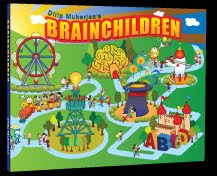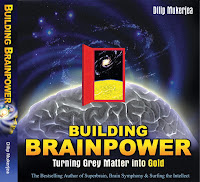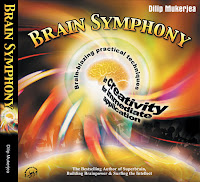Joseph Schumpeter (1883-1950), who popularized the term "creative destruction" in economics, is said to have remarked:
“Early in life, I had three ambitions. I wanted to be the greatest economist in the world, the greatest horseman in Austria, and the best lover in Vienna.
Well, I never became the greatest horseman in Austria.”
Schumpeter was also a giant in the history of economic thought. His magnum opus in the area was 'History of Economic Analysis', edited by his third wife, Elizabeth Boody, and published posthumously in 1954.
His major works include 'The Theory of Economic Development, Business Cycles, and Socialism and Democracy'.
In these books, he suggests that in a stationary economy an entrepreneur wishing to make a profit had to introduce an element of change, that is, a new way or a better product.
Entrepreneurs and innovators brought about change: the innovator/inventor provided the idea and the entrepreneur activated it in the marketplace.
In his book, 'Capitalism, Socialism, and Democracy', we see a sparkling defense of capitalism on the grounds that capitalism sparked entrepreneurship.
Indeed, Schumpeter was among the first to lay out a clear concept of entrepreneurship.
He distinguished inventions from the entrepreneur’s innovations.
Schumpeter pointed out that entrepreneurs innovate, not just by figuring out how to use inventions, but also by introducing new means of production, new products, and new forms of organization. These innovations, he argued, take just as much skill and daring as does the process of invention.
Innovation by the entrepreneur, argued Schumpeter, led to “gales of creative destruction” as innovations caused old inventories, ideas, technologies, skills, and equipment to become obsolete.
The question, as Schumpeter saw it, was not “how capitalism administers existing structures,... [but] how it creates and destroys them.”
This creative destruction, he believed, caused continuous progress and improved standards of living for everyone.
Schumpeter felt that businessmen were too conservative and needed to be jolted out of their lethargy by the actions of entrepreneurs.
Once an innovation became successful, abnormal profits were earned and a host of imitators copied the idea.
Eventually, as the markets grew, costs rose, profits diminished, and eventual losses led to deflation and stagnation. Equilibrium was restored until another period of innovation and growth occurred.
Schumpeter wrote:
“Capitalism…is by nature a form or method of economic change and not only never is but never can be stationary…The fundamental impulse that sets and keeps the capitalist engine in motion comes from new consumer goods, the new methods of production or transportation, the new markets, the new forms of industrial organization that capitalist enterprise creates.”
This process “incessantly” destroys the old economic structure, and creates a new one.
Schumpeter concluded:
“This process of Creative Destruction is the essential fact about capitalism…Every piece of business strategy acquires its true significance only against the background of that…perennial gale of creative destruction.”
Schumpeter's Quotes:
“The ballot is stronger than bullets.”
“Entrepreneurial profit is the expression of the value of what the entrepreneur contributes to production.”
“Bureaucracy is not an obstacle to democracy but an inevitable complement to it.”
“Economic progress, in capitalist society, means turmoil.”
“It is not true that democracy will always safeguard freedom of conscience better than autocracy. Witness the most famous of all trials. Pilate was, from the standpoint of the Jews, certainly the representative of autocracy. Yet he tried to protect freedom. And he yielded to a democracy.”
“The religious quality of Marxism also explains a characteristic attitude of the orthodox Marxist toward opponents. To him, as to any believer in a faith, the opponent is not merely in error but in sin. Dissent is unapproved of not only intellectually but also morally.”
[Excerpted from the 'Lifescaping' seminar participant's manual. The 'Lifescaping' seminar is conducted by Dilip Mukerjea about four times a year under the auspices of the Singapore Institute of Management.]
Subscribe to:
Post Comments (Atom)
















No comments:
Post a Comment